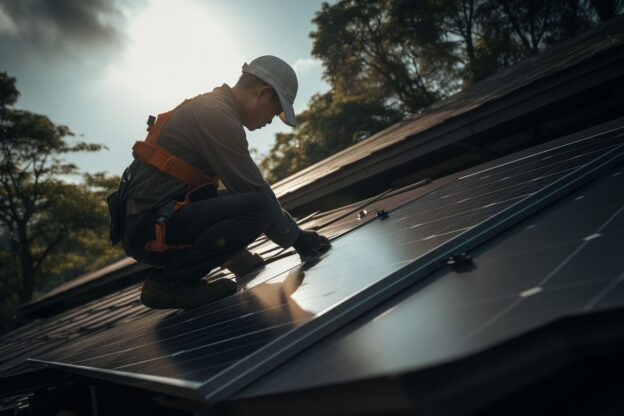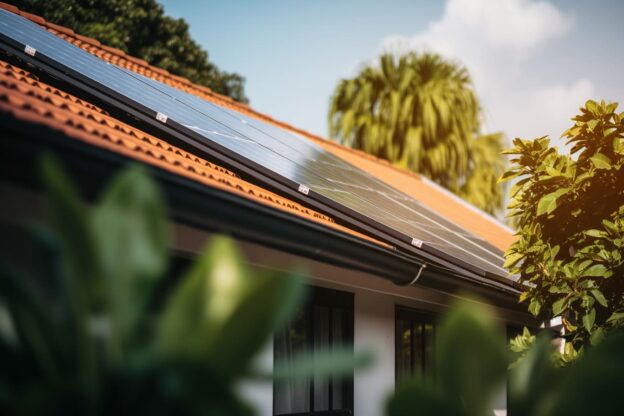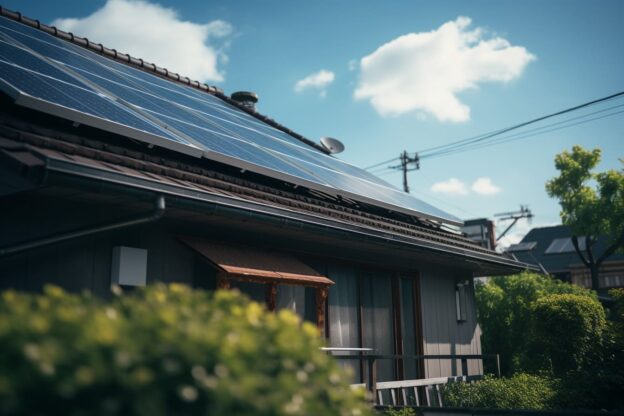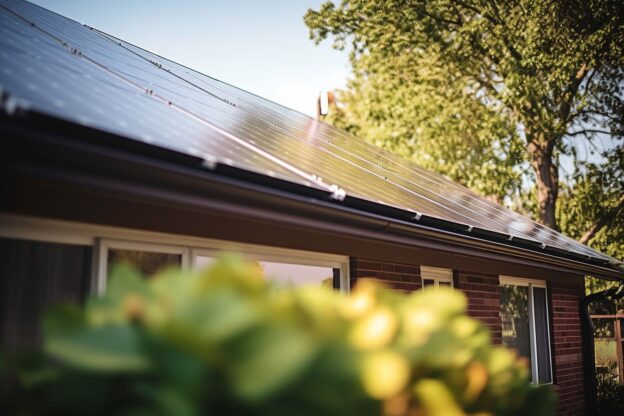Solar panels require very little maintenance, making them a convenient and reliable source of energy. In most cases, regular cleaning is the only maintenance required to keep solar panels functioning at optimal levels.
Here are some of the maintenance tasks that are typically required for solar panels:
- Cleaning. Dust, bird droppings, and other debris can accumulate on the surface of solar panels, reducing their efficiency. Cleaning solar panels on a regular basis, usually once or twice a year, can help to maintain their efficiency. Cleaning can be done with a gentle spray of water or with a specialized solar panel cleaning solution and a soft brush.
- Inspection. It is important to regularly inspect the solar panels for any damage or defects, such as cracked or broken glass, loose connections, or shading from nearby objects. Any issues should be addressed promptly to avoid potential damage to the solar panel system.
- Monitoring. Regular monitoring of the solar panel system can help to detect any potential issues, such as a decrease in output or a malfunction in the inverter. Monitoring can be done manually or through a remote monitoring system, which allows real-time monitoring of the solar panel system’s performance and alerts when there is an issue.
- Battery maintenance. If your solar panel system includes a battery storage system, it is important to maintain the battery to ensure its longevity and performance. This can include regularly checking the battery’s state of charge, keeping it at the correct temperature, and ensuring it is protected from overcharging or over-discharging.
- Inverter maintenance. The inverter is a crucial component of the solar panel system and it is important to make sure it is functioning properly. This can include regular checks for any signs of damage, as well as software updates to ensure the inverter is running at its optimal level.
- Annual check-up. An annual check-up by a professional can help to ensure that the solar panel system is functioning correctly and that there are no issues that need to be addressed.
In general, the maintenance required for solar panels is minimal and can be easily handled by the homeowner. However, it’s important to have a professional inspect and maintain the system at least once a year to ensure that everything is working correctly and to prolong the life of the solar panel system.



